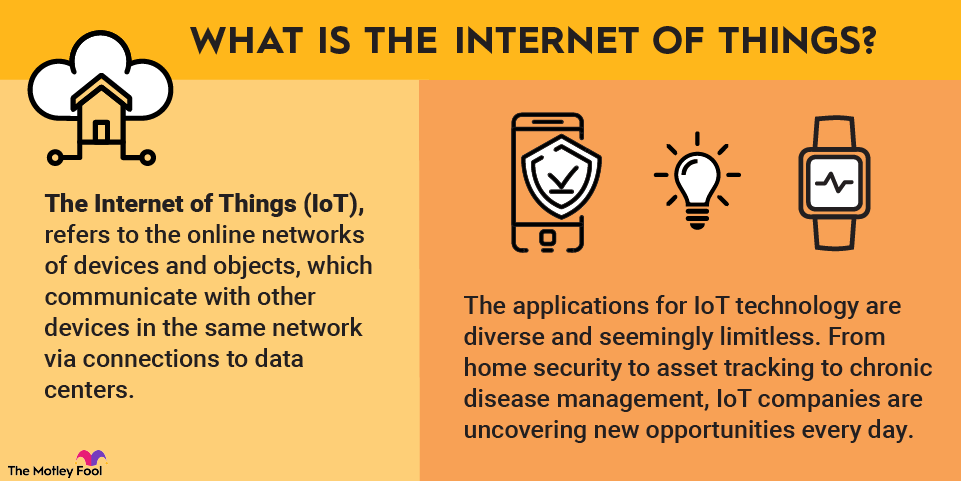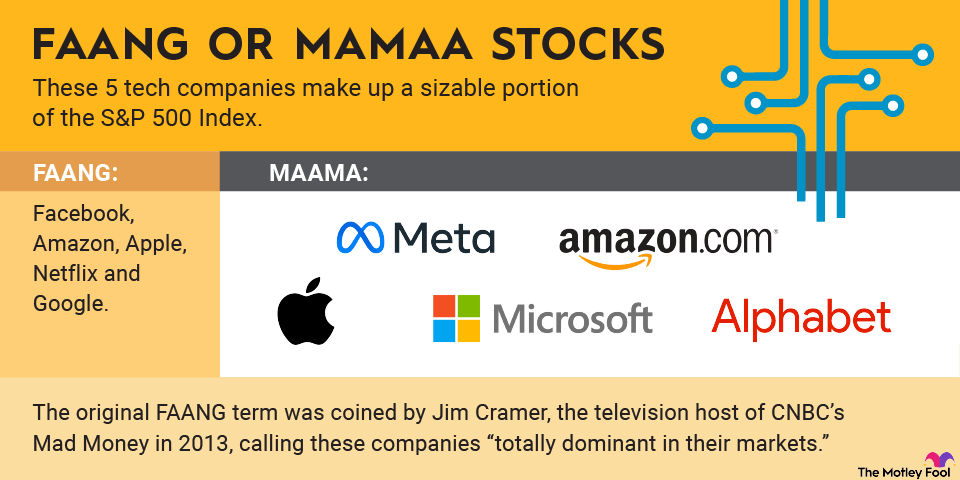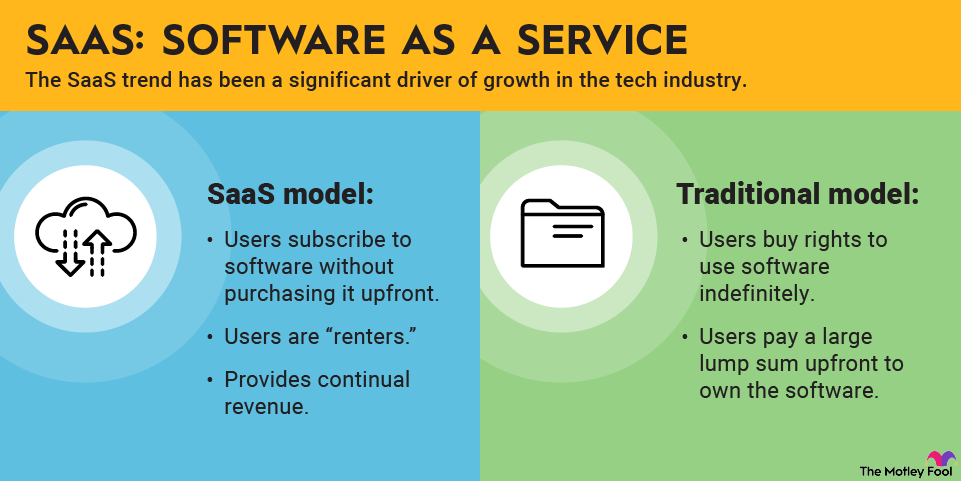Augmented reality (AR) aims to enhance our natural world through technology. The interactive experience uses computer-generated information to enrich what we perceive in the natural world.
The AR market is growing fast as more companies and people embrace this technology. According to data by Statista, the AR market will top $62 billion in 2029. That implies a 9% compound annual growth rate over the next few years.
Many companies are working toward capturing a slice of the AR market. Here's a look at some of the top augmented reality stocks.
Best augmented reality stocks
Several companies are working on augmented reality technology. Here's a list of some of the best augmented reality stock picks:
| Name and ticker | Market cap | Industry |
|---|---|---|
| Meta Platforms (NASDAQ:META) | $1.8 trillion | Interactive Media and Services |
| Alphabet (NASDAQ:GOOG) | $4.1 trillion | Interactive Media and Services |
| Nvidia (NASDAQ:NVDA) | $4.6 trillion | Semiconductors and Semiconductor Equipment |
| Apple (NASDAQ:AAPL) | $3.8 trillion | Technology Hardware, Storage and Peripherals |
| Microsoft (NASDAQ:MSFT) | $3.2 trillion | Software |
| Qualcomm (NASDAQ:QCOM) | $162.4 billion | Semiconductors and Semiconductor Equipment |
| Unity Software (NYSE:U) | $12.5 billion | Software |
Here's a closer look at these top growth tech stocks focused on augmented reality.
1. Meta Platforms

NASDAQ: META
Key Data Points
Social media giant Meta Platforms (META -2.95%) has been investing heavily in building other technology platforms. The company's Reality Labs segment is building augmented reality, virtual reality (VR), and artificial intelligence (AI) tools and services like Oculus, Spark AR, and Orion AI Glasses.
Meta Platforms has partnered with Ray-Ban to develop smart glasses technology. The glasses can take photos and videos, make calls, and live stream. With Meta AI, it can also, for example, translate text in real-time or tell you the history of a building you are looking at.
The company sees a massive opportunity for AR glasses powered by AI. CEO Mark Zuckerberg commented on the company's opportunity in glasses on its first quarter earnings conference call in early 2025:
Glasses are the ideal form factor for both AI and the metaverse. They enable you to let an AI see what you see, hear what you hear, and talk to you throughout the day. And they let you blend the physical and digital worlds together with holograms. More than a billion people worldwide wear glasses today, and it seems highly likely that these will become AI glasses over the next five to 10 years.
2. Alphabet

NASDAQ: GOOG
Key Data Points
Alphabet (GOOG -0.02%) is the corporate umbrella company that holds the iconic Google search engine and YouTube online entertainment channel. The company also has several "other bets," including cybersecurity company Chronicle and autonomous driving technology venture Waymo.
Google is using AR in various ways. For example, Live View on Google Maps allows users to quickly orient themselves to the area around them and know which way to go via directions overlaid on the live screen of their surroundings. Meanwhile, Google Lens allows users to search what they see. They can scan and translate text, search for an item that caught their eye, or identify plants and animals. The company's AR technology is making it easier for people to discover the world around them.
Google is also developing AR glasses and VR headsets. It's also following Meta by integrating AI into those products to enhance the user experience.
3. Apple

NASDAQ: AAPL
Key Data Points

NASDAQ: MSFT
Key Data Points

NASDAQ: QCOM
Key Data Points

NASDAQ: NVDA
Key Data Points
7. Unity Software

















